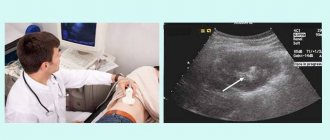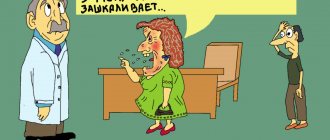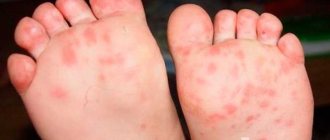Almost immediately after turning 40, women begin to worry about the upcoming test - menopause. Most have heard a lot of bad things about this phenomenon: mood swings, hot flashes, sweating, dizziness, sleep disturbances, fatigue and decreased performance... Who will be pleased with this prospect? But, as they say, resistance is futile.
Photo - Lori's photo bank
What is menopause in women: symptoms, age, treatment of possible problems
Menopause (menopause) is a period of gradual decline in the body's reproductive function, which is caused by a decrease in the production of sex hormones. At this stage, menstrual flow (months) becomes irregular, scanty and eventually stops. This occurs due to a decrease in the production of estrogen and progesterone, depletion of the follicular reserve of the ovaries during menopause, and their atrophy, which leads to a decrease in their weight and size by almost half.
Signs of menopause (Climax), as well as the time of their first appearance, vary and are individual for each woman.
Some may complain of hot flashes, headaches, unstable blood pressure, while others may practically not notice changes in their own body, except for the cessation of menstruation, that is, this period passes without symptoms. If the symptoms of the onset of menopause cause a deterioration in a woman’s quality of life, then appropriate therapy is prescribed, which will be discussed below.
Menstruation during hormonal changes
The menstrual cycle remains the same during premenopause, but the frequency of discharge and its consistency can vary significantly.
The main acceptable options for stopping menstruation as a result of hormonal changes in the body:
- Menstruation appears rarely, and the breaks between cycles and the nature of their course may not be the same. This period lasts for 3 years, but the symptoms of menopause do not cause serious discomfort.
- Your period disappears unexpectedly and never returns. In the absence of characteristic discharge, the symptoms of menopause are felt, but they are mild.
- The break during the next two menstrual cycles is 2-4 months, after which they stop completely.
- Menstrual bleeding occurs randomly, and they can resume after a long break with varying duration and abundance.
When do the first signs of menopause appear: the age of women
The time of onset of this period is individual for each woman and depends on a number of factors (heredity, general health, number of births in history). On average, the age at which the first symptoms of menopause appear is 50 years, but in some cases, the onset of menopause can be observed at both 40 and 60 years. The greatest intensity of menopause symptoms usually persists for a year, after which it gradually decreases and ends.
Separately, it is worth noting early menopause. Symptoms of this condition can begin as early as 28-30 years of age. If the first signs of menopause occur so early, there is a risk of developing cardiovascular diseases and osteoporosis at a young age.
Expert opinion
The onset of early menopause quite often coincides with a woman’s period of social and sexual activity. Therefore, reducing the intensity of menopause symptoms is important not only from a medical but also from a social point of view.
Obstetrician-gynecologist of the highest category Oksana Anatolyevna Gartleb
At what age does menopause occur?
The age at which women reach menopause can vary significantly. Most people experience menopause around age 50. However, the first manifestations occur much earlier. The first symptoms of the onset of the process are often noted as early as 45 years of age. However, after the onset of menopause, irregular periods can continue up to 50-55 years.
Sometimes there is an early menopause. It can appear before age 40. Premature menopause sometimes develops between the ages of 30 and 39. The timing of menopause is influenced by a whole list of factors, which include:
- heredity;
- amount of children;
- Lifestyle;
- rhythm of life;
- the presence of gynecological diseases or chronic pathological processes;
- a number of other factors.
Menopause is a fairly long physiological process. It can take several years from premenopause to the end of your period.
The first symptoms of menopause in women aged 40-50: how does menopause begin?
Among the main signs of menopause after 40, which appear first, are the following:
- Hot flashes, sweating. Hot flashes are the first signs of menopause, which 75-85% of women experience. Hormonal changes in the body during menopause affect thermoregulation processes. As a result of changes in hormonal levels during menopause, a woman may suddenly experience bouts of fever, which usually last several minutes and go away on their own. The mechanism of their occurrence is associated with the effect of estrogens on the hypothalamus, which contains the thermoregulation center that controls the processes of retaining heat by the body. When the amount of estrogen decreases during menopause, signals are sent to the hypothalamus that the body is overheating, which results in increased sweating and dilation of peripheral blood vessels. At such moments, the woman’s face and neck turn red, beads of sweat appear on the skin, the heartbeat quickens, dizziness, nausea and weakness may be present. At the end of the attack, profuse cold sweat may appear, accompanied by trembling.
- Heart rhythm disturbances during menopause. Tachycardia during menopause is caused by a decrease in estrogen levels, which normally affects the maintenance of normal functioning of the cardiovascular system.
- Dizziness, headache. These symptoms of incipient menopause can be caused by high/low blood pressure, as well as its sudden changes.
- Forgetfulness. Changes in hormonal levels lead to a decrease in vascular tone and affect cerebral circulation, which is why women during menopause complain of memory problems.
- Unstable emotional background during menopause. A decrease in the level of estrogen and endorphins leads to tearfulness, irritability and excessive sentimentality.
- Lack of thyroid hormones (hypothyroidism). Symptoms of hypothyroidism in menopausal women include apathy, difficulty concentrating, and hair loss.
- Vaginal dryness, itching and burning in the vagina during menopause. Due to a decrease in estrogen levels, there is a decrease in the production of natural vaginal lubrication, the intensity of blood flow in the vessels of the vaginal walls decreases, and thinning of the mucosa occurs. All this leads to dryness and itching; intimacy during menopause causes painful sensations.
- Osteoporosis. Osteoporosis is one of the dangerous symptoms of menopause that can lead to bone fractures. The reason for the decrease in bone density is the gradual leaching of calcium from the body, as well as a disruption in the absorption of phosphorus and vitamin D, a lack of silicon, boron, fluorine, magnesium and manganese.
- Gaining excess weight. Weight changes are explained by a decrease in the rate of metabolic processes, an attempt to compensate adipose tissue for extragonadal synthesis of sex hormones, which is one of the characteristic symptoms of female menopause.
- Decreased skin tone. One of the functions of estrogens is to maintain the elasticity of the skin. As the production of these hormones decreases, skin tone deteriorates, resulting in wrinkles, dryness, and flaking during menopause.
- The occurrence of mastopathy and chest pain due to ongoing hormonal changes.
Age range
The menopausal period (symptoms, treatment and duration for each woman occurs differently, based on the individual characteristics of the body) was recorded by specialists from 40-45 years old, but now this indicator has shifted to the age of 51 -55 years, which is due to an increase in the level of life expectancy among representatives of frailty. floor.
But in some cases, menopause can be diagnosed earlier or later , depending on provoking factors and hereditary predisposition. As a result of research, experts have proven that a woman who smokes experiences hormonal changes 3 years earlier than others.
Problematic features of menopause in women: symptoms and treatment
In some cases, the manifestations of menopause cause a woman such a severe deterioration in her quality of life that she has to seek medical help to reduce them. Below you will find general information regarding the treatment of menopausal symptoms, but remember that treatment should be prescribed by a specialist.
Self-medication can lead to new health problems and worsening symptoms of menopause.
Treatment of hot flashes during menopause
For frequent and intense hot flashes that cause physical and emotional discomfort to a woman, menopausal hormone therapy (MHT) medications may be prescribed. They contain analogues of sex hormones - both plant and synthetic origin. More often it is a combined drug based on estrogen and progesterone, which has a protective effect on the uterus (endometrium) and mammary glands.
To achieve the best results, it is advisable to start taking hormone replacement drugs at the very beginning of menopause, when its first symptoms appear. The dosage and regimen should be drawn up by a doctor, taking into account the woman’s general health, medical history, age, TSH, FSH levels.
Despite the fact that menopausal hormone therapy can reduce the unpleasant symptoms of menopause, in some cases its prescription is impossible. We are talking about absolute contraindications to taking MHT - such as heart attack (Infarctus) and/or stroke (Insultus), deep vein thrombosis, renal or liver failure, hormone-dependent oncological diseases, autoimmune diseases.
Preparations based on phytoestrogens, for example, Climafemin Ginocomfort, act as an effective alternative to MHT. This is a dietary supplement that contains the phytoestrogen genistein, an organic substance that helps reduce hot flashes and sweating, normalizes metabolism and hormonal levels, and improves sleep quality. In addition to genistein, the product contains active ingredients such as vitamin E, coenzyme Q10 and grape seed extract. All of them have a beneficial effect on a woman’s body, helping to preserve youth and normal well-being.
Treatment of hypertension during menopause
If the symptoms of menopause are accompanied by increased blood pressure, treatment may also include taking antihypertensive drugs (diuretics and diuretics).
Normalization of psycho-emotional state
If during menopause a woman experiences serious emotional instability, even to the point of developing depressive states, she may be recommended sedatives, and in especially severe cases, antidepressants.
Therapy for osteoporosis during menopause
To combat such a symptom of menopause in women as osteoporosis, they are prescribed to take bisphosphonates, calcitonin, strontium preparations, fluoride salts, vitamin-mineral complexes and food supplements containing boron, calcium, vitamins K1 and D. During menopause, it is recommended to include foods in the diet foods rich in calcium and vitamin D (milk, hard cheese, poppy and sesame seeds, soy, nuts, fresh herbs, fish; beef and pork liver, egg yolks, fish oil, cod and halibut liver, butter).
To reduce the manifestations of osteoporosis during menopause, it is necessary to stop smoking, since tobacco helps remove calcium from the body.
Combating vaginal dryness during menopause
To solve the problem of vaginal dryness caused by the onset of menopause, you can use special intimate gels. For example, you can use the Gynocomfort moisturizing gel, which provides relief from natural vaginal secretions and eliminates itching, dryness, burning and irritation in the vagina.
This product was tested during clinical studies conducted at the Department of Dermatovenereology with the clinic of St. Petersburg State Medical University, under the leadership of Ignatovsky A.V. and Sokolovsky E.V. Clinical studies have shown that due to the components included in the gel, the use of the product helps to achieve good hydration.
Neurologist Dmitry Shubin and the appearance of menopause. Live healthy!
The mucus-like consistency of mallow extract, which is part of the product, envelops and moisturizes the mucous membrane of the vulva, has a mild soothing and anti-inflammatory effect on it. Chamomile extract has a beneficial effect on existing microcracks, promoting their speedy regeneration. Panthenol and bisabolol eliminate irritation and have antibacterial properties. Moisturizing gel "Ginocomfort" was developed by specialists from a pharmaceutical company and has the necessary certificates of conformity.
Also, during menopause, a gynecologist may recommend the use of vaginal suppositories containing herbal or synthetic analogues of sex hormones. Some folk remedies for treating crisis symptoms can also be extremely effective. But it is better to coordinate everything with your doctor.
The use of such products helps to normalize the thickness of the mucous membrane during its atrophy, enhance the formation of vaginal secretions, and maintain an optimal level of acidity.
What happens in a woman's body
During reproductive age, most of the estrogen is produced by the ovaries. With the onset of menopause, the hormone-producing function of the ovaries decreases, but a small amount of estrogens is formed from androgens in fat and muscle tissue. Lack of estrogen stimulates the hypothalamic-pituitary system - the production of follicle-stimulating (FSH) and luteinizing hormones (LH) increases.
Estrogen deficiency affects, first of all, the state of the reproductive system - menstruation stops, reproductive function fades, and libido decreases. However, estrogen receptors are located not only in the uterus and urogenital tract, but also in other organs - mammary glands, brain, bones, heart and blood vessels, skin.
How to reduce symptoms and signs of menopause in women: useful tips
With the onset of menopause, it is recommended to adhere to the following recommendations:
- Move more, engage in feasible sports and physical exercise.
- Master breathing and relaxation techniques
- Eat right and stay hydrated.
- Exercise your brain (read, solve crosswords, learn foreign languages).
- Perform exercises that train fine motor skills.
Remember: a correct lifestyle and timely consultation with a doctor if necessary will allow you to reduce unpleasant symptoms during menopause!
Sources:
- SOFT CLIMAX. Zhexembinova R. S. // Bulletin of surgery of Kazakhstan. – 2011. – No. 4. – P.98.
- MODEL OF SPECIALIZED CARE FOR WOMEN WITH Climacteric Disorders. Kholodova L.N., Protopopova N.V., Kravchuk L.A., Sharifulin M.A. // Siberian Medical Journal (Irkutsk). – 2004. – P. 76-77.
- Guide to outpatient care in obstetrics and gynecology / ed. V. E. Radzinsky. — 2nd ed., revised. and additional - M.: GEOTAR-Media, 2019. - 944 p.
- Gynecology: textbook. for universities / ed. G.M. Savelyeva, V.G. Breusenko. — 4th ed., revised. and additional - M.: GEOTAR-Media, 2012. - 432 p. : ill.
- https://www.medicinenet.com/menopause/article.htm
- Menopausal syndrome. EAT. Vikhlyaeva // Guide to endocrine gynecology. - M.: MIA. - 1998. - P. 603-650.
- Therapy of depressive disorders in general medical practice. Dubnitskaya, E.B. A.V. Andryushchenko // Modern psychiatry. – 1998. – No. 2. – pp. 10-14.
- Menopause and perimenopausal period. R.B. Jaffe // Reproductive endocrinology. Edited by S.S.K. Yen, R.B. Jaffe. – M.: Medicine. - 1998. - T.2. – pp. 560-586.
- https://www.menopause.org/for-women/menopauseflashes/menopause-symptoms-and-treatments/are-we-there-…
- https://www.healthline.com/health/menopause/symptoms-signs
- https://nccih.nih.gov/health/menopause/menopausesymptoms
Diet for menopause
Treatment to relieve unpleasant symptoms during the menopausal period can also be carried out with the help of a balanced diet. It is necessary to follow a special diet throughout the entire hormonal changes in the body. This will help to avoid not only excess weight, but also prevent the appearance of swelling, irritation, unjustified feelings of fatigue and osteoporosis.
First of all, it is necessary to exclude fast food, alcohol, fatty foods, sweets and spices from the diet. Secondly, limit the consumption of salt and sugar to a minimum. You should also control the amount of water you drink per day - at least 2 liters, not counting other drinks.
You should definitely include fermented milk products (yogurt, cottage cheese, cheese, sour cream, kefir) in your diet, but not low-fat ones, since they lack vitamin D, and this interferes with the absorption of calcium in the body. For those with a sweet tooth, you need to replace cakes and chocolate with marshmallows and marmalade. Fresh fruits and vegetables should be consumed daily in unlimited quantities.
During menopause, it is better to give preference to steamed or boiled food, which will prevent an increase in cholesterol levels in the body. It is recommended to eat whole grain bread, and choose pasta from durum wheat.
To generally maintain the body and maintain health, you should enrich your diet with the following products:
- turkey, chicken, rabbit meat;
- walnuts;
- eggs;
- fatty sea fish;
- prunes;
- blueberry;
- soy cheese tofu;
- carrot;
- broccoli;
- cauliflower and white cabbage;
- mango.
Menopause is often accompanied by constipation, so to avoid this, you need to regularly eat fresh vegetables.
Popular questions
Hello, hot flashes have begun, mood changes have begun, (menopause) the uterus has been removed due to mime.
What can you take in combination with vitamins to reduce this condition? You can start taking Ginocomfort climafemin 1t once a day for 3 months to relieve vegetative storms.
Hello, burning sensation in the vagina, menopause, the doctor prescribed Levomekol ointment, what else can I use?
Hello! In your case, you can use Ginocomfort gel with mallow extract, 1 dose 1 time per day for 10 days, and then 2 times a week for a long time. This product contains herbal components, bisabolol and panthenol, which will moisturize and restore the mucous membranes of the genital tract. In the absence of contraindications, it is possible to use estriol-containing drugs, for example Ornion cream, which will be etiotropic therapy.
Hello! Surgical menopause, breast cancer in 2011. I suffer from vaginal dryness, periodic cystitis and constant vaginitis after each sexual intercourse. What prevention methods are possible? After every contact?
During menopause, you can use products that do not contain hormonal components. In the Gynocomfort line, this requirement is met by a gel with mallow extract. This will help not only moisturize the mucous membranes, but also restore elasticity and aid in regeneration. The gel can be used both before contact and as needed without a time limit.
Hello, I’m 47 years old, menopause has been going on for 5 years now, at 42 it ended and that’s it, at first I didn’t take anything, the condition worsened, hot flashes and mood swings, poor sleep. 3 years ago, on the doctor’s recommendation, I took Femoston 1/5 for a year. I took it for 1 year, felt good, stopped taking it, after all, it’s hormones, now I feel bad again. hot flashes, increased blood pressure, palpitations, poor sleep, hot flashes mainly at night and depression, tell me Ginocomfort Klimafemin could help me or should I take Femoston again?
Hello!
At this stage, you can start by taking Gynocomfort climafemin. This will improve your well-being and you will have time to conduct additional examinations before resuming menopausal hormone therapy, if necessary: pelvic ultrasound, mammography, lipid spectrum, general blood test, TSH level, consultation with a therapist and obstetrician-gynecologist, smears for flora and oncocytology. For an accurate diagnosis, contact a specialist
How long does menopause last?
Each woman is individual, and therefore no one can say exactly how long menopause will last. But studies have shown that on average this period is 7.5 years. But this indicator largely depends on the individual characteristics of the organism.
Therefore, sometimes it lasts from 2 to 4 years, and sometimes it lasts a whole decade until the hormonal changes are completely over.
Treatment during the menopausal period is necessary after the appearance of unpleasant symptoms and only on the recommendation of a doctor. This is due to the fact that not every woman experiences menopause in a complicated form, and therefore uncontrolled use of drugs can become an impetus for the development of serious health complications.
How to prolong youth in the female body?
Despite the fact that with the advent of menopause, a woman’s reproductive function has ended, her life does not end there, which means that it is necessary to maintain the normal state of the body and help it cope with hormonal changes in every possible way. For this purpose, it is necessary to consult a doctor at the first symptoms of menopause, who will select the right therapy and, in addition to prescribing medications, will also tell you about alternative treatment methods.
To ensure that menopause goes unnoticed for you, be sure to follow the following rules; they will also help you delay the onset of menopause if you start following them at the initial stage:
- make a balanced diet the norm, remove smoked foods from the menu, consume less salt, marinades and fast carbohydrates. You need to eat more fiber;
- you can resort to massages and therapeutic baths;
- you need to play sports, walk more, take the stairs rather than the elevator;
- use hormonal and herbal preparations;
- drink vitamin complexes, and also eat more foods containing vitamin E.
Reasons contributing to the approach of menopause
Prerequisites that contribute to the approach of menopause may be:
- various intoxications (smoking, alcohol abuse, psychotropic substances),
- chronic diseases (especially of the genitourinary area),
- artificial termination of pregnancy (abortion),
- metabolic and endocrine disorders (diabetes mellitus, obesity, diseases of the thyroid gland, adrenal glands),
- chronic stress, prolonged high physical and mental stress.
Treatment
Menopause is a natural process. But some symptoms at this stage bother women so much that they need to be removed with appropriate treatment.
The selection of conservative therapy begins with a visit to the doctor. The gynecologist will not only conduct an examination, but will also prescribe a number of additional tests, on the basis of which it will be possible to judge changes in the internal organs.
To reduce the symptoms of menopause, not only medications are used, but also, in some cases, herbal medicine, physiotherapy, and physical therapy complexes.
POPULAR WITH READERS: Hibiscus oil with benefits for hair and skin
All this allows you to normalize general well-being, leads to improved metabolic processes, makes it easier to fall asleep, and increases mental performance.
Therefore, you should not refuse medications and other methods of treatment for your own good.
Also, timely treatment of menopause reduces the likelihood of serious diseases and complications in later life.
The main goal that gynecologists set for themselves when treating women with menopause is to prevent a rapid drop in estrogen levels.
Their smooth reduction is possible by taking hormonal drugs; this method is called HRT - hormone replacement therapy.
It is especially indicated for:
- Early and artificial menopause.
- Severe menopausal disorders - with depression, prolonged insomnia, sudden changes in mood, significant irritability.
- In the presence of atrophic processes in the genital organs. These changes are evidenced by frequent cystitis, urinary incontinence, vaginal dryness and recurrent colpitis.
- Identifying the first signs of osteoporosis.
Correction of hormonal levels should only be carried out under the supervision of a doctor.
In some cases, HRT is contraindicated, and exceeding the duration of taking hormonal drugs can also lead to a number of complications.
Non-hormonal treatment is aimed at eliminating changes in the nervous system.
Women during menopause are prescribed:
- Bellatamil or Belloid. These medications lead to a decrease in emotional instability.
- Neuroleptics and antidepressants are prescribed according to indications.
- Vitamin complexes.
- Calcium is used as a preventative against osteoporosis.
- Phytohormones – Red brush, Climaxan, Ledis formula menopause.
- Suppositories to reduce vaginal dryness.
Physical therapy for menopausal women is mandatory.
It helps strengthen the pelvic muscles, reduces the likelihood of genital prolapse, and significantly improves mood and overall well-being.
You can use herbal infusions that have calming, restorative and anti-inflammatory properties.
The unpleasant symptoms of menopause can be reduced by quitting smoking and drinking alcohol.
It is imperative to eat properly with a predominant consumption of plant-based and fermented milk foods.
Women should avoid stressful situations, rest more, and not give up intimacy.
READ ON THE TOPIC - how to reduce stress hormones prolactin and cortisol.
The duration of medication depends on the duration of the menopause and on the well-being of women. The dosage of hormonal and other medications is selected by the doctor, and if necessary, he replaces them with similar medications.
Ways to delay the onset of menopause
How to fight aging - an effective way has not yet been found. While cosmetic procedures can help increase skin elasticity, it is impossible to cope with the decline of fertility. This is an inevitable process of aging.
But there are methods that help women delay ovarian failure and stay young and happy longer. This is a normal lifestyle adjustment. Proper nutrition and light exercise will help you not only stay in shape, but also live long.
Methods to help delay the onset of menopause:
- Vitamin E: It improves skin elasticity and helps produce more collagen. It is found in cereals, nuts, salad and greens.
- Cellulose. Intestinal slagging is a contamination of the entire body. Bran bread, cereals, fruits and vegetables help normalize the digestion process and get rid of excess.
- Refusal of salt. It is also recommended to remove sausages, smoked meats and other harmful semi-finished products from the diet.
- Reducing carbohydrates. This technique will help avoid the development of diabetes and excess weight.
- Walk more. Don't forget that movement is life. Daily walks help keep your metabolism high and speed up blood circulation in the pelvic organs.
- Compliance with doctor's recommendations. A specialist may recommend taking estrogen-progestin drugs that maintain hormonal stability.
- Emotional stability. It is necessary to avoid stressful situations and look for a positive emotional state.
A woman should not perceive menopause as the end of her life. Psychologists recommend finding a hobby, going on a trip, or simply changing your environment. To feel attractive, you need to go to spas and go shopping.
A man should give a woman more compliments so that she always feels desired and loved.
Three stages of menopause
Modern doctors distinguish three basic stages of menopause, with their own characteristics and physiological changes in the woman’s body.
Premenopause
The duration of this period is on average about 2–4 years. In women, the intensity of menstruation gradually decreases and their cycles lengthen. By the end of the menopause, a decrease in the hormonal function of the ovaries comes to the fore - chronic diseases worsen, unpleasant symptoms appear, new health problems form (the cardiovascular system suffers first of all);
Menopause
This stage is called true menopause. Menstruation completely disappears, the negative symptoms of the first period temporarily fade. The average duration of menopause is about one year; on average, it is diagnosed in women aged 49 to 51 years;
Postmenopause
The last stage of menopause. After true menopause, the negative symptoms of the syndrome begin to appear again; often at this stage, women develop multiple disorders of the genitourinary system, and sexual desire partially or completely disappears. Postmenopause lasts until the end of a woman's life.
Why does menopause begin prematurely?
Menopause does not necessarily occur at an advanced age. There are factors that contribute to menopause coming ahead of time:
- operations on the pelvic organs. Among the most dangerous are removal of the uterus with appendages or ovaries and fallopian tubes;
- sexually transmitted diseases and complications from them. Particularly dangerous in this regard is gonorrhea, in which purulent salpingoophoritis can develop, leading to unpreventable disorders in the ovaries;
- Alcoholism and drug use lead to a cessation of estrogen production.
How to relieve the condition
Menopause is a physiological period in a woman’s life, so it is impossible to restore estrogen production by the ovaries with the help of medications. Treatment of menopausal syndrome is aimed at alleviating the woman’s condition. For this purpose, drugs for symptomatic treatment, systemic hormone replacement therapy, phytoestrogens and lifestyle correction are used.
Symptomatic treatment
Some symptoms of menopause can be alleviated, and dangerous consequences can be prevented. For symptomatic treatment, medications are prescribed: antidepressants, bisphosphonates, local estrogens.
| Manifestation of menopausal syndrome | Drugs for treatment |
| Psycho-emotional disorders | To combat psycho-emotional symptoms, antidepressants are prescribed - selective serotonin reuptake inhibitors (SSRIs). The dosage is selected individually by titration. Antidepressants can relieve symptoms of depression - improve mood, eliminate apathy, get rid of tearfulness and irritability. |
| Osteoporosis | Bisphosphonates, drugs that slow down bone resorption, will help combat postmenopausal osteoporosis and prevent frequent fractures. Additionally, it is recommended to take calcium and vitamin D to strengthen bones. |
| Urogenital disorders | Local estrogens will help get rid of vaginal dryness and painful sensations when urinating. The drugs are available in the form of vaginal suppositories, ointments and gels - Ovestin, Estrogel, Divigel. |
Phytoestrogens
You can ease menopause with the help of phytoestrogens, which are found in food or herbal preparations.
The content of which foods should be increased in the diet:
- flax seeds;
- bran, whole grains;
- beans, chickpeas, lentils;
- green pea;
- fruits and berries.
Phytoestrogens improve a woman’s overall well-being and relieve symptoms, but they are not able to cover all the body’s needs.
Flax seeds contain phytoestrogens and may help manage some menopausal symptoms.
Hormone replacement therapy
In severe menopause, systemic hormone replacement therapy is indicated. Women who experience menopause early are prescribed two- or three-phase combination drugs containing estrogens and gestagens - Klimonorm, Klimen, Divina. Such drugs simulate the normal menstrual cycle. In case of artificial menopause, hormone replacement therapy is carried out only with estrogens - Proginova, Ovestin, Estrofem are prescribed.
Taking systemic hormonal drugs compensates for estrogen deficiency. This allows you to relieve the signs of menopausal syndrome, improve skin condition, and prevent the development of cardiovascular diseases and osteoporosis. However, systemic hormonal therapy also has disadvantages - the risk of thrombosis, malignant tumors of the uterus and mammary glands increases significantly. Therefore, the decision to start replacement therapy is made individually, after a full examination and weighing all the pros and cons.
How to make lifestyle changes to reduce symptoms
The more irresponsible a woman is about her health, the more intense the symptoms of menopause will appear. To reduce the severity of the clinical picture:
- keep a daily routine;
- eat right;
- get enough rest.
It is very important to follow the rules of nutrition.
There is no need to resort to excessive physical activity. Sport should be moderate. Up to three workouts per week is enough. You need to give up existing bad habits.
It is better to have regular sex life. It should also be noted that during this period the possibility of fertilization cannot be completely excluded.
Nutrition during menopause should be healthy and balanced. Portions should be small but frequent. It is advisable to limit the amount of salt consumed as much as possible. Avoid alcohol-containing drinks.
Nutrition during menopause
During menopause, a woman should constantly eat foods rich in the following microelements:
- potassium (prunes, potatoes, legumes, oatmeal, honey);
- potassium (cheeses, asparagus, kefir, sour cream);
- phosphorus (many animal products, including fish);
- boron, magnesium, zinc (almonds, strawberries, peaches).
Women should categorically give up smoking, alcoholic beverages, and fried foods. You should limit your consumption of table salt.
Menopause is a natural process and cannot be prevented or cured. But with the help of replacement therapy, proper nutrition, and sufficient physical activity, its symptoms can be significantly mitigated.
Watch the video:
Is it possible to prevent early menopause?
It is impossible to prevent the onset of early menopause, but you can delay it and alleviate the symptoms. To maintain their beauty and health, girls need to regularly undergo preventive examinations with a gynecologist and promptly treat diseases of the endocrine system and genital organs. It is extremely important to lead an active lifestyle, play sports (swimming, dancing, running, yoga), normalize sleep and allow yourself to rest. A diet will help alleviate the symptoms of menopause - you should increase the content of phytoestrogens in the diet, as well as foods rich in calcium and vitamins.
Is it possible to treat postmenopausal symptoms?
In this case, treatment measures are aimed more at alleviating postmenopausal symptoms. After identifying hormone levels, the gynecologist may prescribe hormone replacement therapy.
In this case, women are recommended:
- regularly take smears and undergo ultrasound examinations twice a year;
- adhere to proper nutrition, follow a diet, give up salt;
- neglect alcohol, cigarettes;
- test the concentration of cholesterol in the blood;
- enrich the body with vitamin complexes;
- moderate physical activity, swimming, walking.
The main thing that needs to be realized during the postmenopausal stage is that this is not a tragedy, but a natural and natural process. A woman should continue to live actively, brightly and interestingly, not forgetting to be examined once every six months.
Factors influencing duration
The hormonal changes that occur during menopause can last about five years until menopause. This time is necessary for the female body to adapt to new conditions. The doctor will suggest undergoing body diagnostics to confirm the suspected diagnosis.
The slower the ovaries reduce estrogen levels, the easier it is tolerated by the body. The period of adaptation to a new hormonal level is difficult. The process can be accelerated by concomitant chronic diseases, psychological instability or hormonal disorders.
It will also be difficult for smokers and people with other bad habits. Alcohol and drugs not only have a detrimental effect on health, but also provoke the development of early aging. Women who have not given birth are also at risk.
Most of all, the duration of menopause and other stages depends on hereditary predisposition. Many gynecologists believe that the earlier a girl’s first menstruation begins, the faster menopause will come. However, this theory has not received scientific confirmation.
Negative environmental factors affecting the duration of the menopausal period:
- the influence of stress and nervous work, a tense environment at home;
- presence of psychosomatic diseases;
- lack of weight;
- number of pregnancies and births;
- bad habits;
- ecology.
The development of the aging process of reproductive function ahead of time is called premature ovarian failure. This pathology can occur even by the age of 36, if the woman’s mother had a similar syndrome.
Early menopause lasts against the background of a young, adequately functioning female body. Sudden estrogen deficiency causes a kind of shock, so it is important for a woman to take annual hormone tests and undergo medical examinations. The body is not ready for such changes, which is accompanied by severe symptoms.
What else affects the duration of menopause and its onset:
- concomitant chronic diseases;
- metabolic diseases (obesity, diabetes);
- heredity;
- endocrine diseases (hypothyroidism, hyperthyroidism);
- brain injuries;
- mental and psychosomatic disorders;
- lack of vitamins and minerals;
- cancerous lesions of internal organs;
- surgical intervention, surgical treatment of the ovaries;
- severe intrauterine infections.
Among the chronic diseases that can affect premature aging are serious pathologies of the cardiovascular and central nervous systems. With inflammatory processes in the ovaries at a young age and with untimely treatment of the problem, there is a risk of early development of menopause.
Difficult relationships with household members
The age of 45 is considered one of the most difficult in a person’s life. Not only the first youth, but also youth are irrevocably gone, children begin to build their adult relationships, even if they still live in the family. All those rough edges in the relationship with the husband, which until now were hidden under the hustle and bustle of everyday life, acutely emerge, because the spouses spent more time taking care of the children.
As a result, absolutely everything begins to irritate. In fact, these are the first signs of menopause. Soon life will take another turn and give a woman new meaning. Psychological stress from one’s own aging is aggravated by the fact that it is at this time that problems arise with growing children and parents, whose age and health leave much to be desired.
An important role is also played by public opinion, according to which menopause is the end of femininity and attractiveness, that is, practically old age. This is a big mistake, since the first signs of menopause do not mean the end of life, it is just a new stage. The main thing is not to get used to the role of a depressed patient, otherwise there is a chance of losing your family. For there will be enough contenders for someone’s fragile happiness.











